SUMMARY
This is AI generated summarization, which may have errors. For context, always refer to the full article.
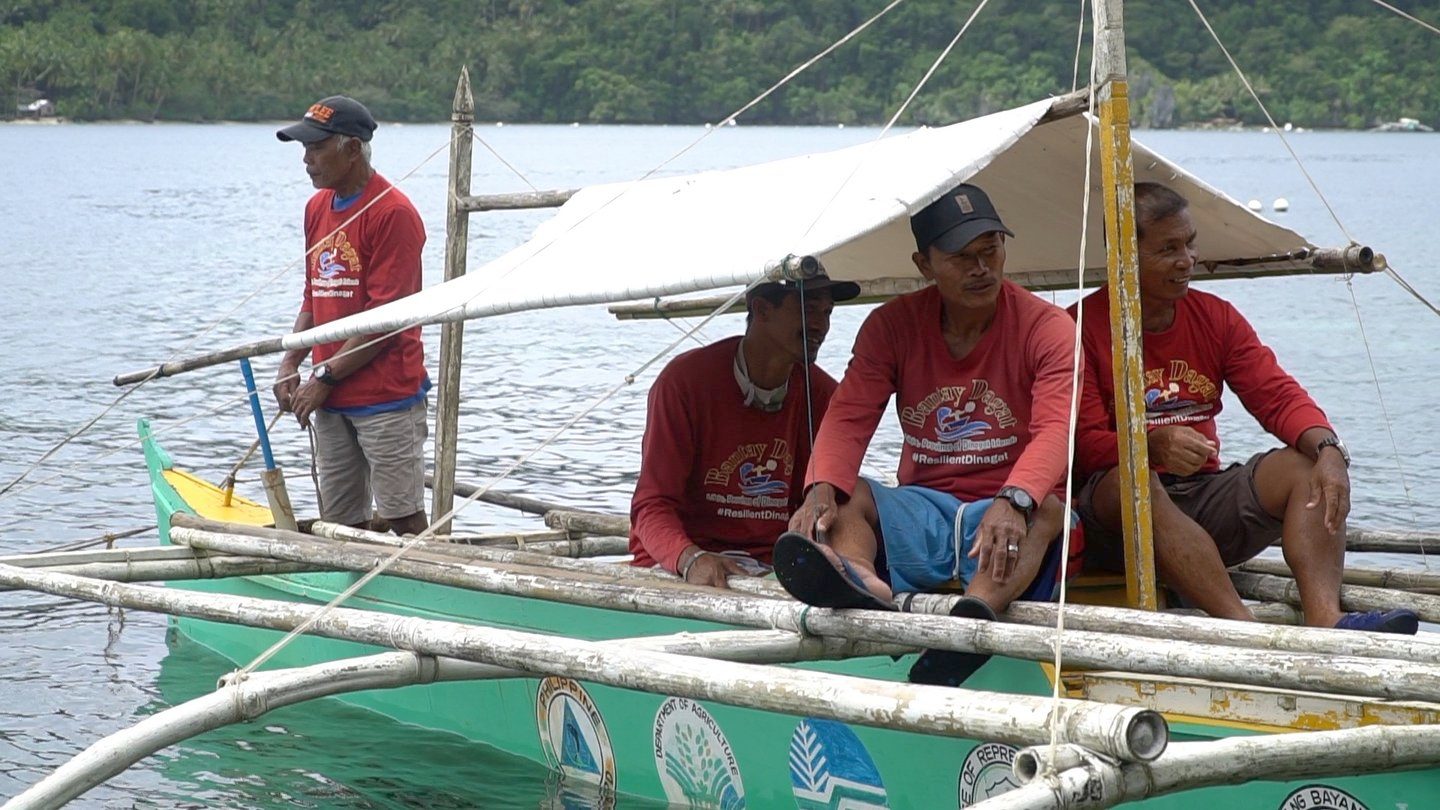
For 5 years and counting, members of the Bantay Dagat Association have made it their mission to end illegal fishing in their municipality of Libjo in Dinagat. This didn’t change even during the coronavirus pandemic.
Besides patrolling the sea, they now seek to establish a fish sanctuary in the Dinagat Islands that’ll help bring back more life to the ocean after years of witnessing illegal and destructive fishing practices.
The catch? While the group tends to a 5-hectare area thanks to non-governmental organization Balay Alternative Legal Advocates for Development (Balaod) of Mindanaw, Libjo’s government has yet to recognize this area as a fish sanctuary.
This means that although there are buoys surrounding the sanctuary, there is no law or ordinance saying that fishing is banned in that area.
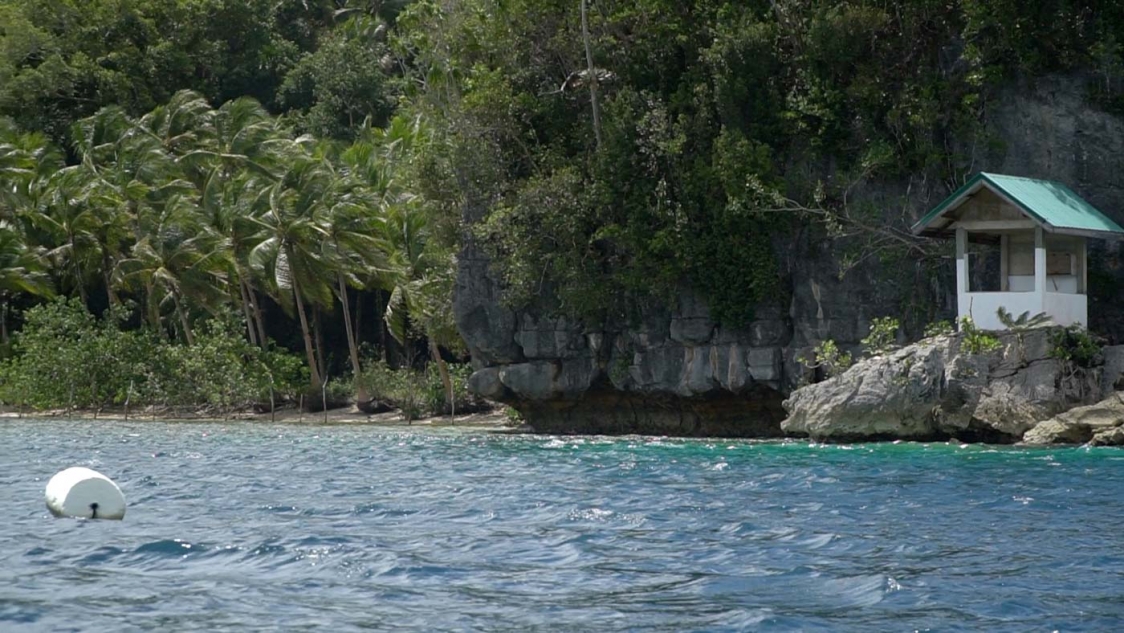
“Kanang sanctuary namo, nangaputol na among mga pataw kay wa man makabantay mag gabii. Unya kung naay managatay nga mulabay, pang putlun man nila hangtod naanod na ang mga pataw uban,” lamented 47-year-old Danny Amporias, a member of Bantay Dagat, during a Rappler interview in February.
(Our sanctuary’s bobbers have been cut because nobody can monitor them at night. When fishermen pass by, they cut the buoys until they start to float away.)
To support the group, the Department of Environment and Natural Resources (DENR) conducted a coastal resource assessment in the municipal waters of Libjo to serve as input for the town’s integrated coastal management plan.
Part of Dinagat Islands’ conservation program, this plan could help funnel more support towards the conservation of the town’s marine resources.
However, due to the coronavirus pandemic, the plan was among those discontinued to pool more funds for COVID-19 response.
Aside from the fish sanctuary’s lack of recognition, Bantay Dagat also struggles to continue its upkeep due to a lack of funding.
Guardians of the sea
Established in 2015, the 28-strong team banded together to answer Balaod Mindanaw’s call for fishermen who wanted to undergo training for deputization as the town’s bantay dagat (guardians of the sea).
Several of these fishermen had actually resorted before to destructive fishing methods, but turned over a new leaf to protect their municipal waters. Among them is Amporias, who lost half of his arm to dynamite fishing.
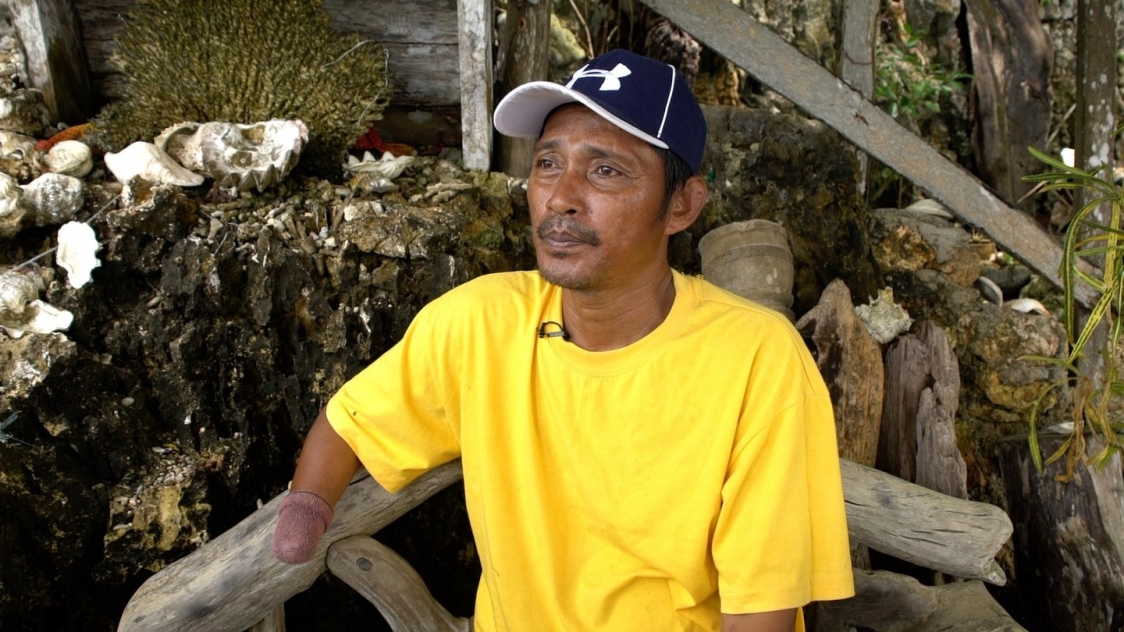
“Murag mao na gyud siguro warning na paundangon ko sa illegal. Undang ko hangtod akong mga kaubanan mga ilegalista, ako silang gi-isturyahan dili maayo gyud ang panagat na illegal. Mao to namiya pud to sila. Hangtod karon, sige mi suroy-suroy dinhi kadagatan, protektahan ang kadagatan lagi. Wala na mi makakita og naa pa’y illegal,” Amporias shared.
(Perhaps that was a warning for me to stop illegal fishing. So I stopped and told my peers that the practice wasn’t good, and they also stopped doing it. Until now, we roam the waters to protect it. We no longer see any illegal fishing practices.)
It was in 2017 when the DENR hired Bantay Dagat to officially protect the town’s waters, after it had operated with funding from Balaod Mindanaw.
For their work, they were each able to get a P4,000 honorarium for 6 months from the DENR. But after that, the group had struggled to find funding to continue their sea patrols, which require gas and fast pump boats.
By 2018, protecting Libjo waters had become a voluntary task.
Out of duty
After years of enduring strong waves, most of Bantay Dagat’s boats are also in dire need of maintenance.
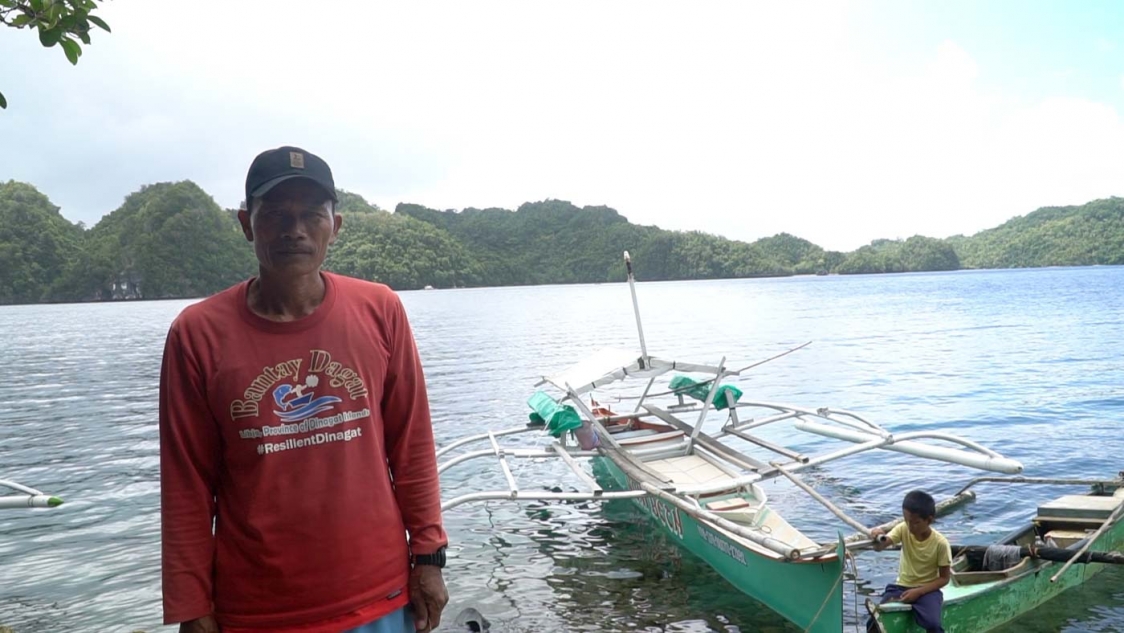
This has made it more difficult for the group to maintain their 5-hectare fish sanctuary. With no funding, operations have slowed down.
“Mag monitor na lang mi sa among sanctuary kay gikalimtan naman mi sa among gobyerno (For now we can only monitory the sanctuary, because our government has forgotten us),” said Bantay Dagat Vice President Arnel Fideles, during an interview with Rappler in February.
It’s the group’s hope that the town will finally acknowledge the fish sanctuary through an ordinance to help future generations of Dinagatnons.
Fideles said Libjo Vice Mayor Zoltan Edera has promised to forward a proposal to legalize and acknowledge the sanctuary.
“Kinahanglan gyud na igo na patibayon ba na at least maila sa Libjo para mahimo’g lig-on na nga sanctuary,” said Fideles. “Sakit biya pud namo paminawon na ang uban mga tao muingon na illegal na ang sanctuary na gitukod…. Sakto man pud sila kay wala man dokumento na pag matuod nga naa’y sanctuary ang lungsod.”
(To make the sanctuary thrive on its own, the town must at least acknowledge it. It hurts us to hear people say that the sanctuary is illegal…. In a way they’re right because there’s no document saying the town has a sanctuary.)
Beneficial to the environment and town
Aside from reviving the supply of fish in the town’s waters, Bantay Dagat President Rodulfo Caja told Rappler that the fish sanctuary could also serve as a potential ecotourism site, where people could snorkel and conduct research once more fish decide to settle down.
Fideles said an entrance fee could even be imposed for the upkeep of the sanctuary.
“Ang sanctuary pag daghan ang isda, i-introduce sa mga turista na gusto mutan-aw diha. Musalom na sila, mutan-aw sa mga klase-klaseng isda na nagpuyo sa sanctuary. Edi makakuha gyapon ang barangay ana, naa gyapon gibale maka-income gyapon ang barangay,” Caja added.
(Once it has a lot of fish, the sanctuary can be introduced to tourists who want to see the place. They can swim and look at the different kinds of fish living in the sanctuary. The barangay can earn from that.)
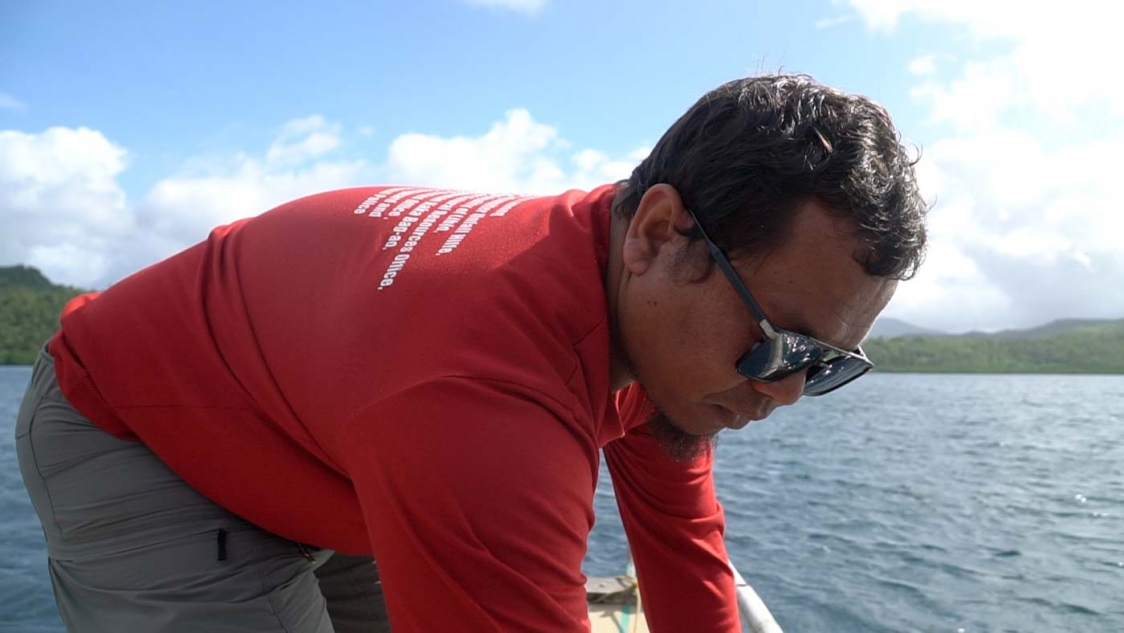
A matter of survival
The push for the establishment of a fish sanctuary in the area is just one of the efforts of Bantay Dagat to conserve their marine resources.
The group also holds information education campaigns in barangays across town to teach the importance of planting mangroves and throwing trash properly. They also conduct coastal clean-ups. However, these have so far been put on hold due to the coronavirus pandemic.
Prior to the creation of Bantay Dagat, several fishermen had resorted to illegal fishing at night, using dynamite to bomb up corals to get their catch faster. There were also fishermen who used compressors, or what locals call buso, to get fish and corals.
These harsh and dangerous fishing practices have made it difficult for law-abiding fishermen to get their own catch, as corals die from the impact and illegal fishermen catch the bulk of the fish in the area.
This is exactly why the Bantay Dagat continues to be on the lookout for illegal fishing practices, despite having no pay. For them, it’s a matter of survival.
“Siyempre, unsa pa may among kuhaon sa dagat og ilang abusaran among dagat. Mao na amo gyud gipaglaban hangtod karon bisag wa pa mi mataga-i og honorarium. Padayon gyapon namo kay mao ra gyud ni gibuhi namo sa among pamilya,” Caja added.
(Of course, what can we get from the sea if illegal fishermen abuse our waters? That’s why we continue to fight even when we don’t have an honorarium. We continue because this is what keeps our family alive.)
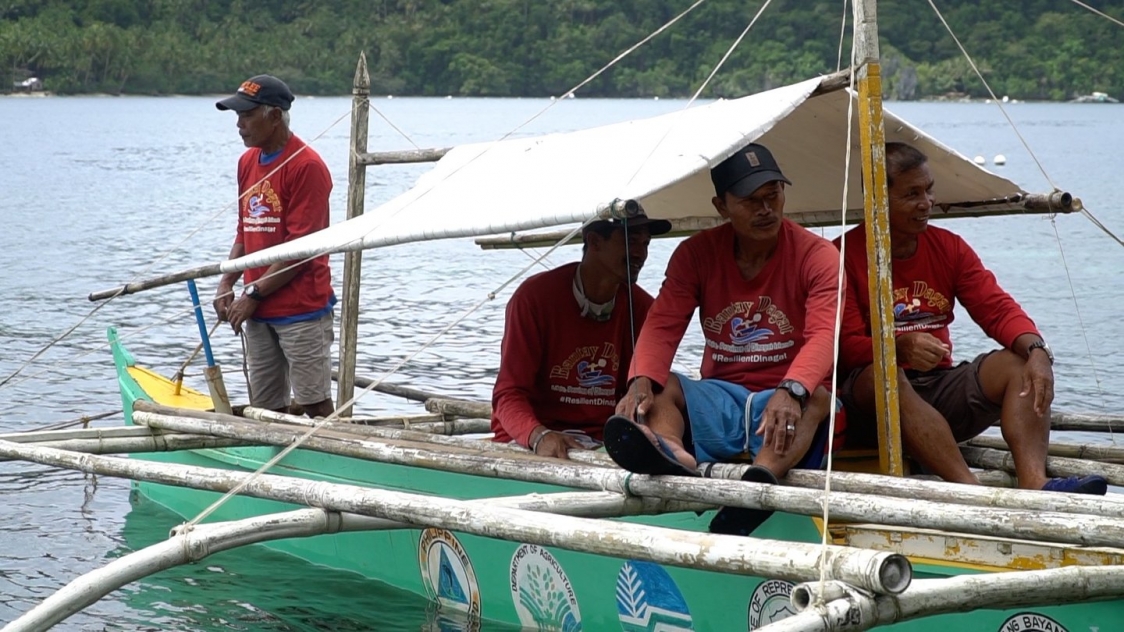
Possible return
Since the group started, Fideles said they no longer see a lot of illegal fishermen in the area.
They fear, however, that the illegal fishermen will be back now that they haven’t been doing sea patrolling at night, when these destructive practices typically happen.
They have had to stop their night patrols with the Philippine National Police, Philippine Coast Guard, and the Municipal Office since 2019 due to the lack of funding. So far, they can only keep a lookout during the day, when they’re out fishing for their livelihood.
They’ve been doing this even during the coronavirus pandemic to check on their fish sanctuary and the small lobster farm given to them by the DENR.
This has been especially helpful as quarantine measures posed major challenges to the field activities and patrolling of the Dinagat Islands’ provincial environment and natural resources office (PENRO).
With the pandemic forcing the office to stay at home and operate with a skeletal workforce, the PENRO has received not only reports of river and mountain quarrying during quarantine but also beach sand extraction. Until now, many of PENRO’s employees have to work from home due to the pandemic, making it difficult for them to keep in touch with groups.
“Naguol mi mga Bantay Dagat nga nakasugod na gyud mi. Unya kalit mahunong. Mao na makita namo karon nga hinay-hinay na pud og sulod ang mga ilegalista kay natan-aw man nila na wa naman operation sa Bantay Dagat,” quipped Caja back in February.
(The Bantay Dagat members here are worried because we’d already started operations, and then they suddenly stopped. We’re starting to see illegal fishermen slowly enter again because they can see that Bantay Dagat no longer has any operations.)
The group hopes that help will come in to allow them to continue operations and maintain their fish sanctuary.
“Basin naay ganahan mag dugang pondo para matagaan mi og budget para mapadayon ni nga kalihokan, dili lang man ni para sa amo kundi para pud tanan dinhi sa Libjo,” said Fideles.
(Maybe there are people out there who want to fund us so we can continue this effort, as this is not just for us, but for all of Libjo.) – Rappler.com

This story is produced in partnership with Friedrich Naumann Foundation.
Add a comment
How does this make you feel?

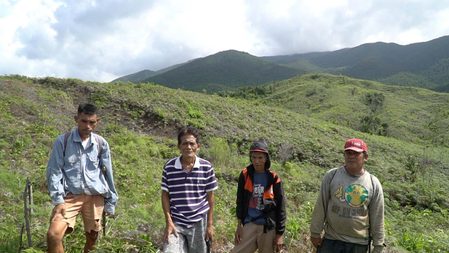

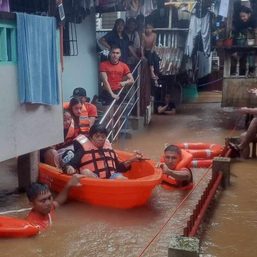
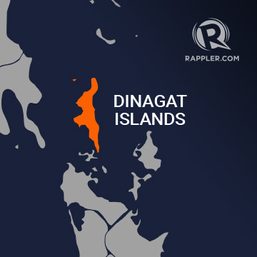

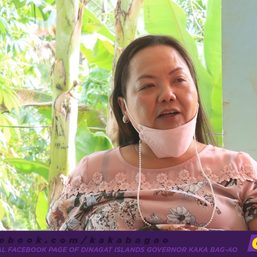
There are no comments yet. Add your comment to start the conversation.